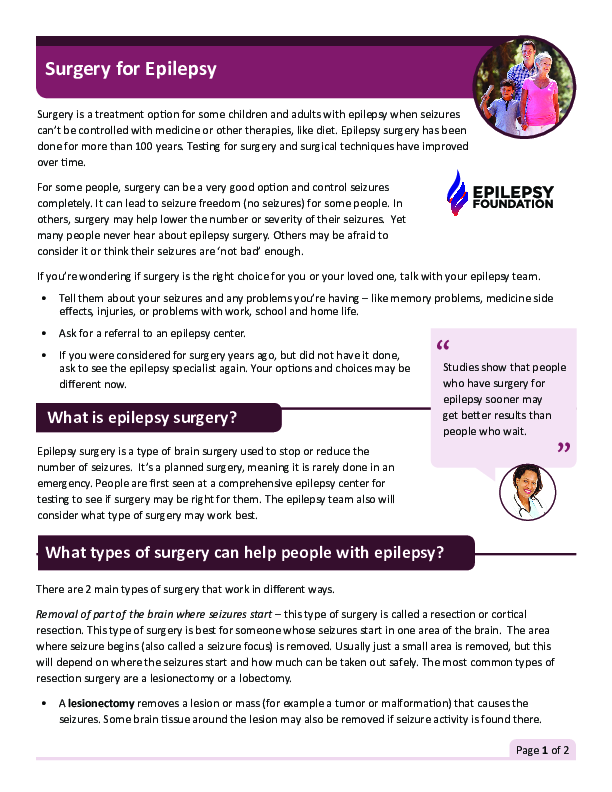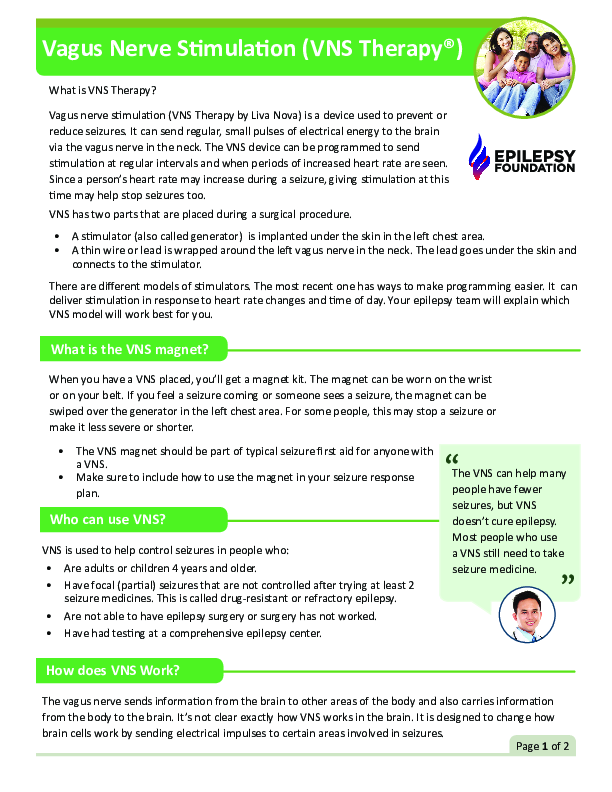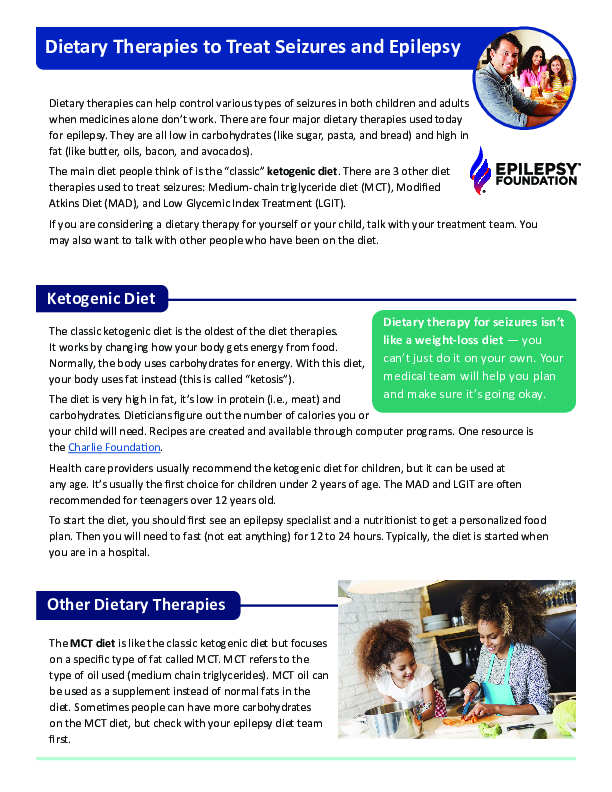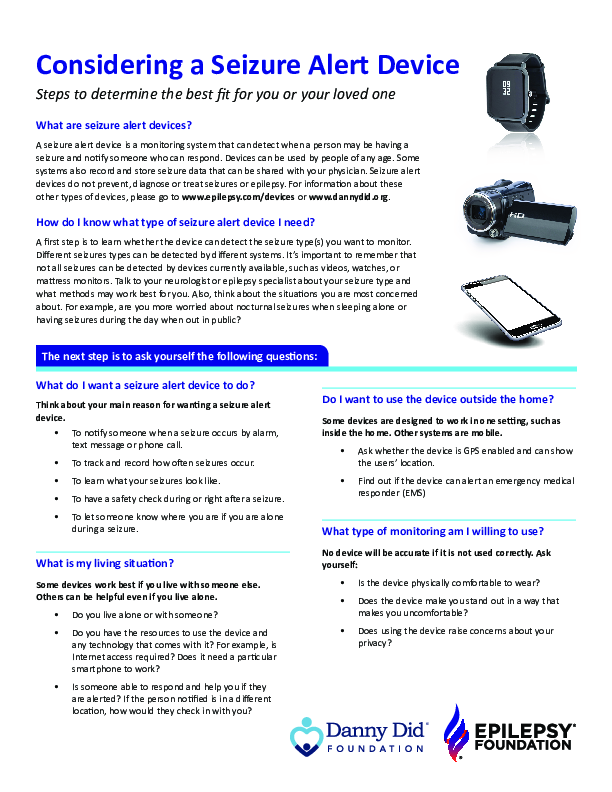Non-Medication Treatment Factsheets

Download Diet, Surgery, and Brain Stimulation Treatment Factsheets
The following factsheets discuss different treatment options for epilepsy.
- If you are a medical professional, share these factsheets with your patients to help them understand their treatment options.
- If you or a loved one lives with epilepsy and have questions about a treatment option, print that factsheet and take it to your next health care appointment. Then discuss with your provider the pros and cons of this option for treating your seizures.
Surgery
Epilepsy surgery is a type of brain surgery used to stop or reduce the number or severity of seizures a person has. Surgery is a treatment option for some children and adults with epilepsy when seizures can’t be controlled with medicine. Download the "Surgery" factsheet to learn more about how epilepsy surgery works, when surgery may be recommended, and what types of surgery may help.
Vagus Nerve Stimulation (VNS) Therapy
Vagus nerve stimulation (VNS Therapy® by LivaNova) is a device used to prevent or reduce seizures by sending small pulses of electrical energy to the brain using the vagus nerve in the neck. Download the "Vagus Nerve Stimulation" factsheet to learn more about VNS, how it works, and who can use it.
Responsive Neurostimulation (RNS) Therapy
Responsive neurostimulation (also known as the RNS® System by NeuroPace) is a “smart” device that can respond to seizure activity by stimulating the brain to quickly stop seizures or prevent seizures from starting. Download the "Responsive Neurostimulation" factsheet to learn about who can use RNS and how the device works.
Dietary Therapies
Dietary therapies can help control various types of seizures in both children and adults when medicines alone don’t work. Dietary therapy should only be used under the supervision and guidance of your health care team, including a dietitian and nutritionist. Download the "Dietary Therapies" factsheet to learn about the 4 major types of dietary therapy used to treat epilepsy, including the ketogenic diet, Medium-chain triglyceride diet (MCT), Modified Atkins Diet (MAD), and Low Glycemic Index Treatment (LGIT).
Considering a Seizure Alert Device
Download and review this factsheet before purchasing a seizure alert device to help you select the best fit for you or your loved one. Find answers to common questions like, "What are seizure alert devices?" and "How do I know what type of seizure alert device I need?" Also find a list of questions to ask yourself when considering a device. Our thanks to the Danny Did Foundation for their assistance with creating this factsheet.
Resources
Epilepsy Centers
Epilepsy centers provide you with a team of specialists to help you diagnose your epilepsy and explore treatment options.
Epilepsy Medication
Find in-depth information on anti-seizure medications so you know what to ask your doctor.
Epilepsy and Seizures 24/7 Helpline
Call our Epilepsy and Seizures 24/7 Helpline and talk with an epilepsy information specialist or submit a question online.
Tools & Resources
Get information, tips, and more to help you manage your epilepsy.







